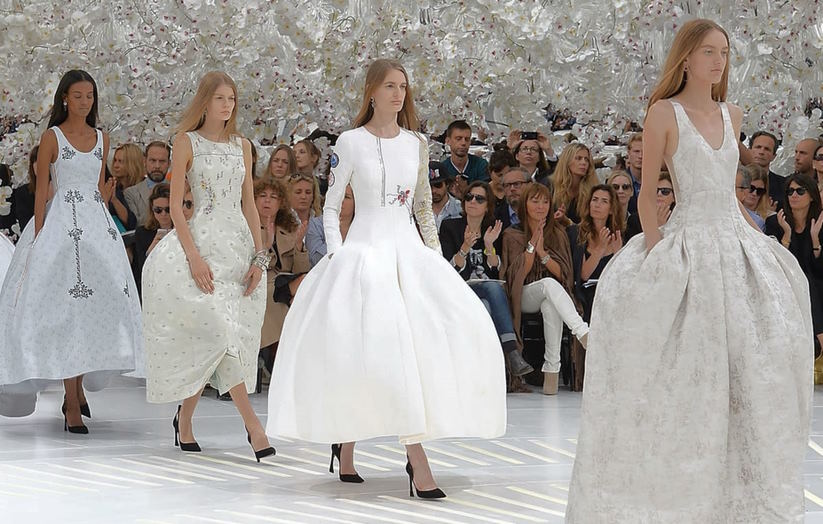
How Fashion Events Influence Style Trends
- Published in Fashion Show & Events
- Permalink
Fashion events have become a staple in the fashion industry, with the most notable ones being fashion weeks held in major fashion capitals around the world. These events bring together designers, fashion enthusiasts, and industry experts to showcase the latest fashion trends and collections. Fashion events have a significant influence on the fashion industry, particularly when it comes to determining the latest style trends. In this blog post, we will delve into the ways fashion events influence style trends and why they remain a crucial aspect of the fashion industry.
How Fashion Events Influence Style Trends
Fashion events, such as runway shows, street style, red carpet events, social media, and editorials, have a significant influence on style trends. These events provide a platform for designers to showcase their collections, and for fashion enthusiasts to explore and discover new trends. Let’s take a closer look at how each of these events influences style trends.
Runway Shows:
Runway shows are perhaps the most significant event in the fashion industry. Designers showcase their latest collections, and the clothes they present become the foundation of new style trends. What’s interesting about runway shows is that they not only showcase new trends but also set the tone for the upcoming season. Fashion enthusiasts look to these shows to understand what will be in style in the coming months.
Street Style:
Street style is a more informal way of showcasing fashion trends. Unlike runway shows, street style involves capturing images of what people wear in their daily lives. The beauty of street style is that it represents real-life fashion, rather than the more abstract looks of runway shows. Photographers take pictures of people wearing their favorite clothes, and those photos are then shared across social media, further influencing style trends.

Red Carpet:
Red carpet events are a chance for celebrities to show off their fashion choices. While many people might think red carpet events are only relevant to celebrities, these events have a significant influence on style trends. Many fashion enthusiasts look to red carpet events to see what their favorite celebrities are wearing, and then try to replicate those looks. Red carpet events are also an opportunity for designers to showcase their work, and the clothes that celebrities wear can set new fashion trends.
Social Media:
Social media has become a significant player in the fashion industry. Platforms like Instagram and TikTok allow fashion enthusiasts to share their fashion choices and discover new styles. Many fashion influencers have built their careers through social media, and their influence on style trends cannot be overstated. Social media has given fashion enthusiasts more power and has democratized fashion, allowing anyone to become a fashion influencer.
Editorials:
Fashion editorials are a way for fashion magazines to showcase new trends and styles. Editors work with photographers, models, and designers to create stunning images that capture the essence of a new trend. Fashion editorials have a significant influence on style trends, as many people look to fashion magazines for inspiration.
Fashion events play a significant role in shaping style trends. Runway shows, street style, red carpet events, social media, and editorials are all important platforms for discovering and sharing new trends. Whether you’re a designer, a fashion enthusiast, or just someone who loves to dress up, these events provide an opportunity to explore the latest styles and find inspiration for your next outfit.
Criticisms of Fashion Events
While fashion events have a significant influence on the industry, they are not without their criticisms. Here are some common criticisms of fashion events:
Exclusivity:
One of the most significant criticisms of fashion events is their exclusivity. Many events are invitation-only, and tickets can be prohibitively expensive. This means that only a select few are able to attend, leaving many fashion enthusiasts feeling excluded. Some have also criticized the lack of diversity among attendees, with many events being dominated by white, thin, and conventionally attractive individuals.
Environmental Impact:
 Fashion events can also have a significant environmental impact. The production of clothing and fashion shows requires a large amount of energy and resources, including water and electricity. Additionally, many fashion events produce a large amount of waste, including discarded fabrics, decorations, and packaging. This can contribute to environmental degradation and climate change.
Fashion events can also have a significant environmental impact. The production of clothing and fashion shows requires a large amount of energy and resources, including water and electricity. Additionally, many fashion events produce a large amount of waste, including discarded fabrics, decorations, and packaging. This can contribute to environmental degradation and climate change.
Ethical Concerns:
Another criticism of fashion events is the lack of ethical considerations. The fashion industry has long been criticized for exploiting workers in developing countries and using environmentally damaging production processes. While some designers have made efforts to incorporate ethical and sustainable practices, many events continue to prioritize profit over ethical considerations.
The Pressure to Conform:
Fashion events can also create a pressure to conform to a certain aesthetic or trend. Attendees may feel pressured to dress in a certain way in order to fit in, while designers may feel pressure to create collections that conform to current trends in order to remain relevant. This can stifle creativity and limit the diversity of styles represented in the industry.
In conclusion, while fashion events play an important role in shaping the industry, they are not without their criticisms. Issues around exclusivity, environmental impact, ethical concerns, and the pressure to conform are all important to consider when evaluating the impact of fashion events. As the industry continues to evolve, it is important for fashion events to take these criticisms into account and strive towards creating a more inclusive, sustainable, and ethical fashion industry.
